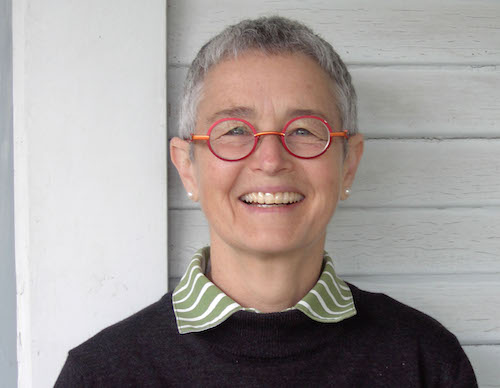Mary Bisbee-Beek is an independent book publicist who specializes in marketing and foreign rights. I am lucky enough to be working with her on a new title from Ooligan Press, A Series of Small Maneuvers. Mary kindly spoke with me about her career, how she got into book publicity, and what she’s doing now.
I know you have been in the publishing field for many years, from teaching to publicity to consulting. Can you give a brief background of your journey and highlight some pivotal moments in your career?
I didn’t set out to work in publishing, but after studying art history in college, I still wasn’t sure what I wanted to do professionally. I knew I didn’t want to teach full time, and I wasn’t sure about working in museums full time, either. So I went to a women’s resource center to look at their job board, and there was an entry-level position open at a scientific publishing company. I applied, had an interview, and was offered a job all in one day.
Luckily, I just happened to land in one of the most fabulous environments I could’ve imagined. The people were outstanding: bright, funny, irreverent—everything I could possibly want. Within three weeks, I joined another department, and all of a sudden I was speaking with scientists of all stripes, even Nobel laureates. It was heady and wonderful. I felt like I was at home!
A few years later that company moved, so I left publishing and held some other interesting positions: a marketer for an architectural firm, a photo archivist for a major museum, and the director of a cartoon art museum, among others. But in 1990, I declared my allegiance to one industry, and books were my leading passion.
In 1992, I opened my own office, and I got lucky. Everything worked really well; I had clients right away, I was having fun, and I had great projects on the desk. In 2003, I took all the tricks and ideas I had accrued and went to work for the University of Michigan Press. That job was unbelievably fun for about five years before I became independent again.
I don’t know if you’ve noticed, but the underlying thread is about having fun and feeling passion for what you are spending your days doing. I don’t think that without those two components one can be successful. Stressful things will always pop up, so you have to have the underlying passion to get through the harder moments.
You’ve been hired by Eliot Treichel to promote his newest book, A Series of Small Maneuvers. Is this young adult novel typical of the work you take on?
The books that I work on are first and foremost well-written books and well-produced books. The work in my office is generally literary fiction, creative nonfiction, cerebral yet readable nonfiction, poetry, and social documentary photo books. Eliot’s book is incredibly well written, and I think I’m a good fit for this project as I’ve worked with other Ooligan marketing committees to create great synergy. I can help carry a project a little further once the book is out. This book in particular could have a long and productive shelf life, and I hope that my participation will help foster that long tail of activity.
As an independent publicist, where do you fit in with the rest of the publishing team? At what point do you come in during the production process? And when are you done? I feel like book promotion could go on forever.
First, yes, book promotion can go on forever. If you decide to focus on this area in publishing, you’ll soon learn that there’s always one more thing you can do with publicity and marketing. I am a firm believer that you need to set up a book. That occurs in the pre-launch phase, or about eight weeks from the launch date. The marketing doesn’t end two weeks after the book comes out—there are always more blogs, more interviews, and more events that one can do if they have the time and if the initial setup is working. When hired out of my own office, I like to work in advance of a book’s publishing date by five to six months, and then for two months after, more if things are still popping up for the book and the author.
You’ve no doubt felt a shift as readers turn increasingly toward the internet for book purchasing, reviews, and discovery. Can you talk about a couple big differences?
Social media is great, but I believe that some of the best material to populate social media with is traditional media. My first calls are always to book review editors at major magazines and newspapers. I send actual books or ARCs because most people still want to read a book in hand, and it’s your least expensive form of marketing dollars. Then you can populate your social media sites with the great reviews you receive as well as links to radio interviews. That being said, I love bloggers and I love to see my authors interviewed by bookstore websites and blogs. Blog tours are great and less expensive than traditional travel. I don’t think one kind of media outdoes the other. We need it all for a successful publicity and marketing treatment.
The biggest difference is how people buy books. Alas, the instant gratification of ordering online often takes the place of a casual evening spent browsing (and buying) in a traditional bookstore. But brick-and-mortar stores will always have my heart. I’m also a huge fan of the public library—librarians are heroes!
You can follow Mary Bisbee-Beek on Twitter at @mbisbeebeek and order A Series of Small Maneuvers by Eliot Treichel through Amazon.

